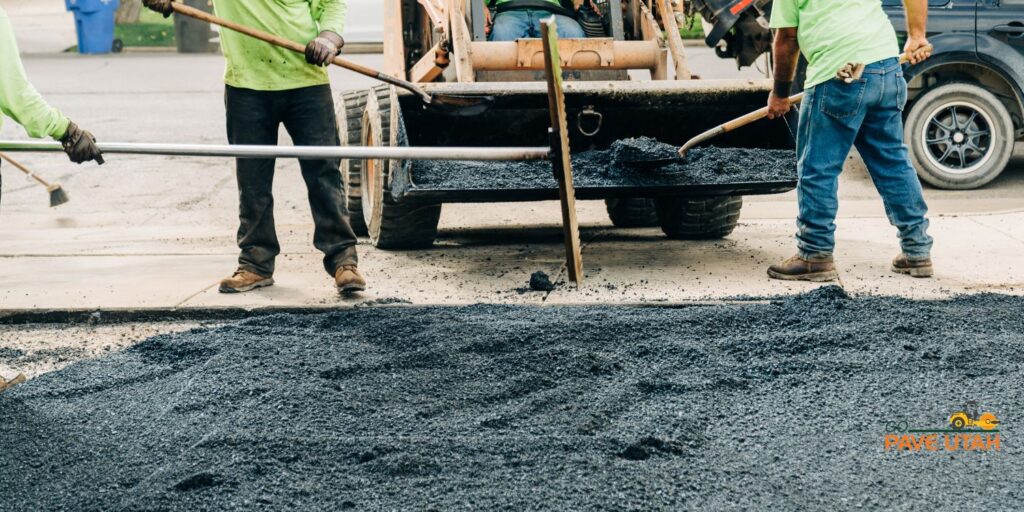
If you’re interested in learning more about asphalt production and processes, you may hear some terms that you’re unsure of. This blog is here to help! Here are a few common terms in the asphalt industry, as defined by the asphaltinstitute.org, that are important to understand:
Absolute Viscosity – The measure of the viscosity of asphalt in relation to time. The test is measured in poises (see definition in Part 2) and conducted at 140oF by using a partial vacuum to create flow in the viscometer.
Aggregate – A hard mineral composition of sand, gravel, slag, or crushed stone. It’s used in pavement applications either alone or by mixing with a binder. Types include coarse, fine, and mineral filler.
Asphalt (Asphalt Binder/Asphalt Cement/Bitumen) – A dark cementitious material containing bitumens from nature or petroleum processing.
Balanced Paving Operation – The balance of the four phases of paving: mixture production, mixture hauling, paving operations, and compaction.
Base Course – The layer of material directly below the surface, typically composed of crushed stone, slag, gravel, sand, or hot-mix asphalt.
Bleeding (Flushing) – Upward movement of asphalt resulting in a film on the surface of the asphalt pavement, typically due to too much asphalt in one or more of the pavement courses.
Cold Mix Asphalt – A mixture of emulsified asphalt produced at a central plant or mixed at the site. Can be stored and used at a later date.
Compaction – The process of compressing a given volume of material into a smaller volume.
Curing – The development of the mechanical properties of the asphalt binder, occurring after the breakdown of emulsion and the particles bond to the aggregate.
Deflection – A load-induced downward movement of a pavement section.
Density – The solidity degree that is achieved in a given mixture. This is only limited by the total elimination of voids between particles in the material.
Ductility – The ability of the substance to be drawn out or stretched/thinned.
Emulsified Asphalt – A combination of asphalt cement, water, and an emulsifying agent.
Emulsifying Agent/Emulsifier – A chemical added to the water and asphalt that keeps the asphalt in stable suspension in the water. It controls the breaking rate.
Fatigue Resistance – The ability of asphalt pavements to resist cracks caused by repeated flexing.
Flexibility – The ability of an asphalt pavement to conform to the settlement demands.
Hot Mix Asphalt (HMA) – High-quality, controlled hot mixture of asphalt binder/cement and well-graded, high-quality aggregate, which can be compacted into a uniform solid mass.
Impermeability – The resistance an asphalt pavement has to the passage of air/water into/through the pavement.
Lift – A layer of paving material that is applied to a base or previous layer.
Lime-treated Subgrade – A technique for subgrade preparation where the subgrade soil and added lime are mechanically mixed and compacted in order to produce a higher modulus (stress response) base material.
Maintenance Mix – A mixture of asphalt emulsion and mineral aggregate created in small amounts intended for use in patching or other repairs.
Be sure to check out Part 2 of this blog series to learn more common asphalt terms pertinent to the paving industry.